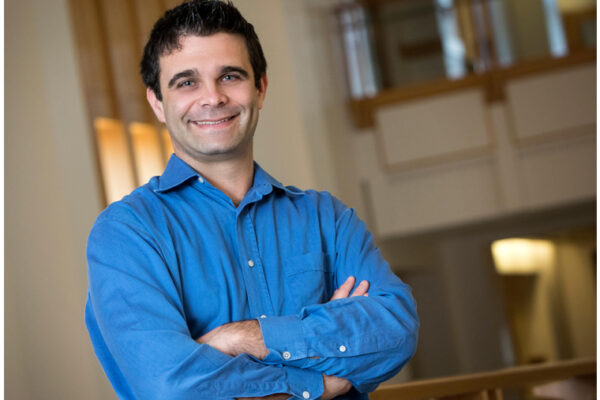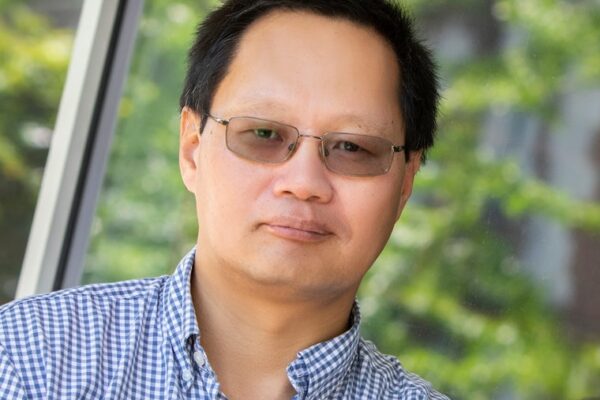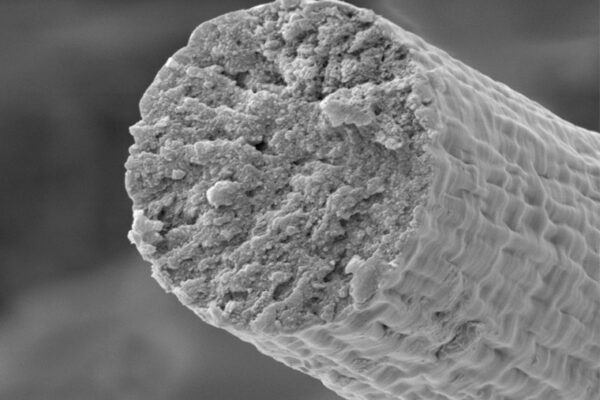NIH awards nearly $2M to Huebsch for study
The McKelvey School of Engineering’s Nathaniel Huebsch will use a nearly $2 million grant from the National Institutes of Health (NIH) to study hypertrophic cardiomyopathy, the most common cause of sudden death in young people.
Oxygen-delivering hydrogel accelerates diabetic wound healing
A new, drug-free technology developed in the lab of Jianjun Guan at the McKelvey School of Engineering helps speed up the healing process of diabetic wounds.
‘Unprecedented opportunity’ to understand neurovascular recovery after stroke
A team from the McKelvey School of Engineering and the School of Medicine will use a $3.12 million grant to improve brain imaging to better understand stroke recovery.
Synthetic biology enables microbes to build synthetic muscle
The lab of Fuzhong Zhang has borrowed from synthetic chemistry to develop a platform enabling bacteria to build a synthetic muscle fiber.
Neurons in visual cortex of the brain ‘drift’ over time
New research from physicists in Arts & Sciences reveals that neurons in the visual cortex — the part of the brain that processes visual stimuli — respond differently to the same kind of stimulus over time.
Researcher wins grant for cell division work
Sarah Anderson, a postdoctoral research associate in Petra Levin’s biology lab in Arts & Sciences, won a three-year $200,946 award from the National Institute of General Medical Sciences’ Biomedical Research and Research Training Program for a project titled “Modulation of Bacterial Cell Division by (p)ppGpp.”
Wang receives award to further develop pregnancy imaging system
Yong Wang, associate professor at the School of Medicine and the McKelvey School of Engineering, has received a 2021 Next Gen Pregnancy research grant from the Burroughs Wellcome Fund for development of noninvasive imaging of uterine contractions.
White clover’s toxic tricks traced to its hybridization
White clover is a weed that grows the world over. Biologist Kenneth M. Olsen in Arts & Sciences discovered how white clover developed its anti-herbivory superpower with input from both of its seemingly innocuous parents.
Can bacteria solve the plastic waste crisis?
Tae Seok Moon, an environmental engineer at the McKelvey School of Engineering, plans to address the global plastic waste problem with a bacterium that would upcycle the plastic into a value-added chemical. His work got a boost from a three-year $861,571 U.S. Department of Energy grant.
For larger, older trees, it’s all downhill from here
Jonathan Myers, associate professor of biology in Arts & Sciences, and William Farfan-Rios, a postdoctoral research fellow of the Living Earth Collaborative at Washington University, are co-authors of a study that found that trees’ fecundity — or physical potential to reproduce — peaked or plateaued as they reached an intermediate size.
Older Stories








